The focus of last week’s news was how many Republican Senators seemed to be in open defiance of their president. This week’s story is the president’s response to a white supremacy and Nazi rally in Charlottesville and its fallout, including the defection of high-level corporate CEOs who were on two presidential advisory councils. In fact, so many defections were happening as of Wednesday afternoon that President Trump disbanded the councils. Sort of like saying “I quit” right before you’re fired.
What’s going on here? The CEOs had options other than quitting. For instance, Walmart’s chief executive, Doug McMillon, sent an email that was subsequently published online, condemning President Trump’s failure to take an unequivocal stance against white supremacy.
There are at least three issues at play here. The first, of course, is the legitimate moral outrage that is the result of the violence that took place in Charlottesville, Virginia over the weekend and the president’s failure to clearly and cleanly condemn the Nazis and white supremacists at the core of the violence. It was no coincidence that the first person to resign was one of the few African-American CEOs in the country, Kenneth Frazier of Merck.
The second reason is, however, more practical. CEOs have to watch over their companies’ brands. And when a politician starts dropping into the “toxic” category he has the potential to hurt a company’s brand. Clearly someone like Kevin Plank, CEO of Under Armour, is not interested in the possibility of a consumer boycott.
The third reason is that, like the Republican Senators who broke with the President last week, these CEOs are not afraid of the president. He has shown little capacity to govern, as illustrated by his failure on health care and his foreign policy gaffes. Because Mr. Trump has no policy expertise it is unlikely that he will be in the middle of the details on a tax bill. Because he has no Democratic friends and has been losing Republican friends at a rapid clip, his political clout is nothing to be feared. For a group of people who pride themselves on performance and who manage down through their companies and up to their boards of directors and analysts on Wall Street, President Trump’s inability to manage his White House, let alone the federal government or Congress, has to have cost him their respect.
Some time ago, I wrote about three possible scenarios for the Trump presidency. The first was that it would, somehow, turn into a more normal presidency. That’s not happening. On Monday, Mr. Trump read a carefully worded statement strongly condemning what had happened in Charlottesville, and by Tuesday, he had undone it. So much for normalcy. The last was that he would be somehow removed, most likely through impeachment. That may still happen but it depends on what the special counsel, Robert Mueller, finds and what the House decides.
The second scenario was that power would simply move away from a dysfunctional president. That seems to be happening. Congress is actually working on a tax bill and talking about infrastructure. The CEOs who abandoned ship this week will probably stay in close touch with House and Senate leadership. The American presidency, for all its elaborate trappings, is actually a pretty weak office. The Founding Fathers built in a system of checks and balances to make sure that there were no kings running America. There are other places to get things done than the White House: Congress, State Houses, and the Courts. This seems to have eluded President Trump—he’s not the king, there are other branches of government.
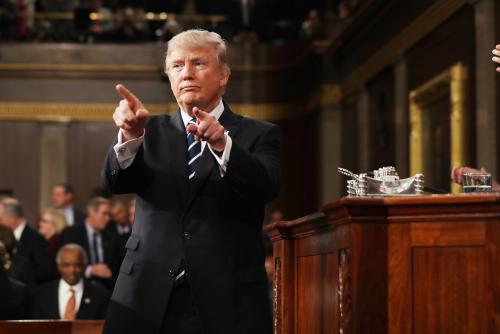
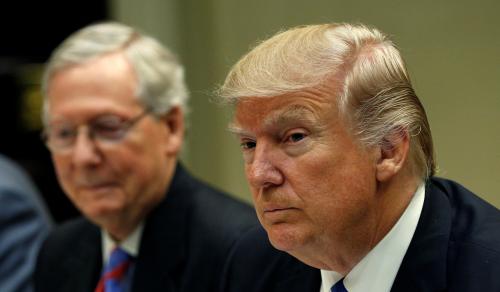
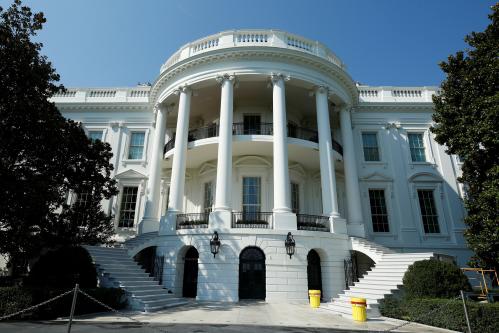
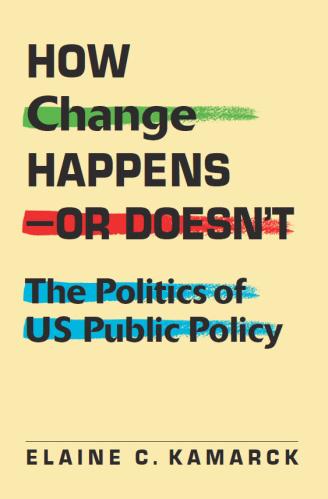
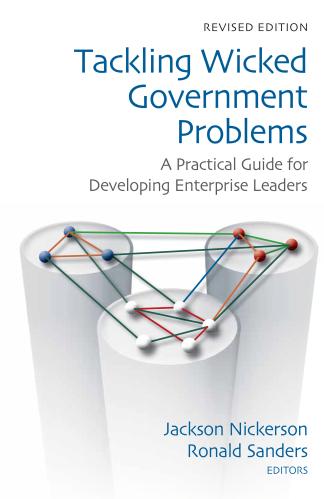





Commentary
The president continues losing friends
August 16, 2017